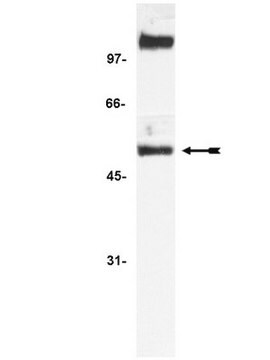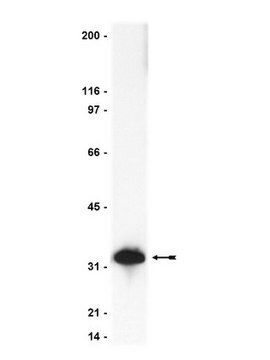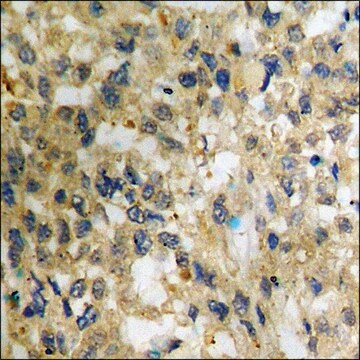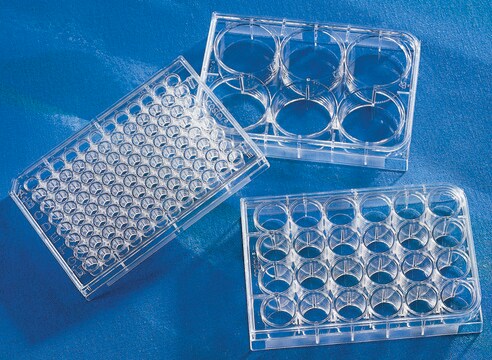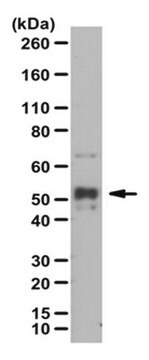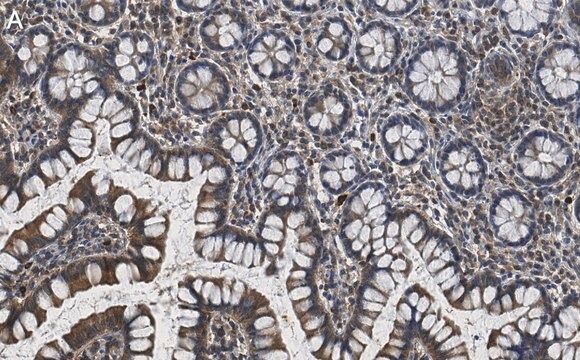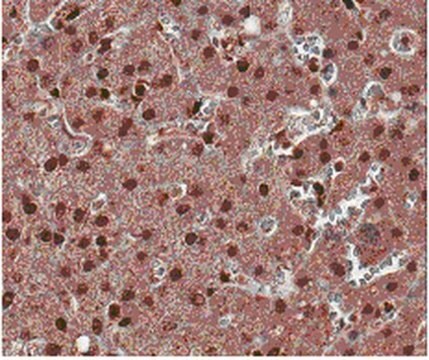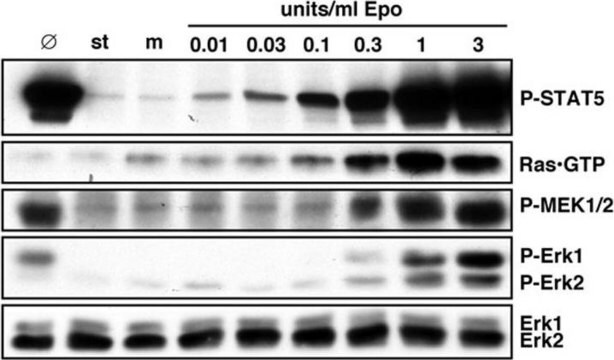05-361
Anti-NFκB p52 Antibody
Upstate®, from mouse
Synonyme(s) :
DNA-binding factor KBF2, Lymphocyte translocation chromosome 10, Oncogene Lyt-10, nuclear factor of kappa light chain gene enhancer in B-cells 2, nuclear factor of kappa light polypeptide gene enhancer in B-cells 2, nuclear factor of kappa light polypept
About This Item
Produits recommandés
Source biologique
mouse
Niveau de qualité
Forme d'anticorps
purified antibody
Type de produit anticorps
primary antibodies
Clone
monoclonal
Espèces réactives
human
Fabricant/nom de marque
Upstate®
Technique(s)
electrophoretic mobility shift assay: suitable
immunoprecipitation (IP): suitable
western blot: suitable
Isotype
IgG2a
Numéro d'accès NCBI
Numéro d'accès UniProt
Conditions d'expédition
dry ice
Modification post-traductionnelle de la cible
unmodified
Description générale
Spécificité
Immunogène
Application
4 µg of a previous lot immunoprecipitated NFκB p52 and its p100 precursor from 500 µg of HeLa nuclear extract cell lysate.
Gel Shift Assay:
A previous lot of this antibody used 2 µg per gel shift assay (Bours, V., 1993).
Epigenetics & Nuclear Function
Transcription Factors
Qualité
Western Blot Analysis:
0.5-2 µg/mL of this lot detected NFκB p52 and its p100 precursor in HeLa nuclear extract. A previous lot detected NFκB p52 and its p100 precursor in human Raji cell, but not in mouse 3T3/A31 cell and rat PC 12 cell lysates. Highly recommended for western blotting.
Description de la cible
Forme physique
Stockage et stabilité
Handling Recommendations:
Upon receipt, and prior to removing the cap, centrifuge the vial and gently mix the solution. Aliquot into microcentrifuge tubes and store at -20°C. Avoid repeated freeze/thaw cycles, which may damage IgG and affect product performance.
Remarque sur l'analyse
Positive Antigen Control: Catalog #12-303, Jurkat cell lysate.
Autres remarques
Informations légales
Clause de non-responsabilité
Vous ne trouvez pas le bon produit ?
Essayez notre Outil de sélection de produits.
En option
Code de la classe de stockage
12 - Non Combustible Liquids
Classe de danger pour l'eau (WGK)
WGK 1
Point d'éclair (°F)
Not applicable
Point d'éclair (°C)
Not applicable
Certificats d'analyse (COA)
Recherchez un Certificats d'analyse (COA) en saisissant le numéro de lot du produit. Les numéros de lot figurent sur l'étiquette du produit après les mots "Lot" ou "Batch".
Déjà en possession de ce produit ?
Retrouvez la documentation relative aux produits que vous avez récemment achetés dans la Bibliothèque de documents.
Articles
The term neurodegeneration characterizes a chronic loss of neuronal structure and function leading to progressive mental impairments.
Notre équipe de scientifiques dispose d'une expérience dans tous les secteurs de la recherche, notamment en sciences de la vie, science des matériaux, synthèse chimique, chromatographie, analyse et dans de nombreux autres domaines..
Contacter notre Service technique